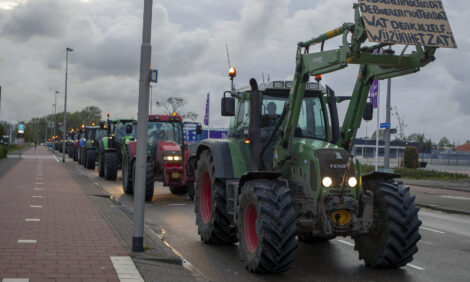



New Zealand’s Dairy Food Safety in Good Shape
NEW ZEALAND - The food safety capability of the New Zealand dairy sector is in good shape according to a report released by the Dairy Capability Working Group today.The independent Dairy Capability Working Group was established in August 2014 by the Director-General of the Ministry for Primary Industries (MPI) to assess food safety capability and capacity in the dairy sector and make recommendations to ensure that current and future needs of the industry are met.
Martyn Dunne, Director-General of the Ministry for Primary Industries (MPI) welcomes the release of the report.
“It is pleasing that the Working Group’s report has concluded that food safety in the dairy sector in New Zealand is in good shape,” said Mr Dunne.
“The group has taken a wide view of the task and has pin-pointed the essential ingredient of ensuring strong capability, namely a robust food safety culture from governance level down through dairy sector organisations and by industry leaders across the sector.”
“It also recognised that all parts of the dairy value chain have a part to play in food safety and that food safety is a matter for all participants in the dairy food business.”
He said many of the points identified in the report may be useful when considering food safety capability in the wider food sector.
In total the Working Group has made 10 recommendations, including three for immediate action. These include the introduction of voluntary guidelines on best practice food safety governance for board directors; the need to highlight food safety excellence across the sector; and improving cross-sector capability through a programme of industry/regulator secondments involving MPI.
Other key recommendations with a longer timeframe include: promoting a food safety culture across the dairy sector and ensuring common understandings of all dimensions of food safety; enhancing the relevance and scope of food safety education and training, especially for leadership and non-specialist roles; and, raising the profile of food safety careers.
Greg Gent, Chair of the Dairy Capability Working Group says the Group’s findings make it clear that New Zealand’s dairy food safety capability is in good shape, with examples of excellence in many parts of the value chain.
“Our recommendations are about preparing for the future to ensure that New Zealand’s dairy food safety capability remains world class,” said Mr Gent.
“There are areas of education and training where a greater emphasis on food safety awareness would benefit the dairy sector, particularly in leadership roles and in broader qualifications that require food safety awareness. We also found a need to give food safety careers a higher profile and to articulate clear career pathways across the dairy sector.
“That, however, is only part of what is required to future-proof our dairy sector’s food safety capability. We also need to build a common sector-wide food safety culture. That culture needs to be based on a common understanding of food safety across the sector that places consumer safety firmly at the centre, coupled with supporting governance and a risk management orientation within each organisation.
“Leadership is key to this culture shift and the Working Group sees the empowerment and training of board directors as critical to achieving this change. Such a culture change will also need to be supported through collaborative partnerships that involve regulators, industry, education organisations, research institutes and consumers.”
MPI convened a meeting of senior dairy sector representatives on 10 December to discuss the report and its implications for industry. “Sector leadership will play an important part in ensuring the recommendations can make a real impact on future dairy food safety capability,” said Mr Dunne.
Implementation of agreed recommendations will commence in 2016.
The formation of the Working Group was the result of a recommendation from the Whey Protein Concentrate Inquiry in 2013.
Members of the Working Group are from the dairy industry, dairy industry associations, education and research organisations, verification agencies and government.
TheCattleSite News Desk


